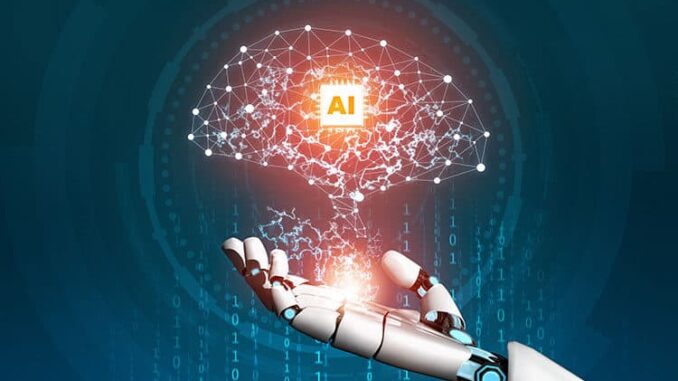
Accessing quality educational resources and engaging with communities is crucial for anyone looking to learn about artificial intelligence (AI).
Here’s a list of popular educational platforms, online courses, resources, and communities that can help you dive into the world of AI:









### Educational Platforms and Courses
1. **Online Learning Platforms**:
– **Coursera**: Offers a wide range of AI courses from reputable universities (e.g., Stanford, DeepLearning.AI). Notable courses include Andrew Ng’s “Machine Learning” and the “Deep Learning Specialization.”
– **edX**: Features courses from top universities like MIT and Harvard. Check out the “MicroMasters Program in Artificial Intelligence” and “AI from Columbia University.”
– **Udacity**: Provides Nanodegree programs focused on practical skills in AI, machine learning, and deep learning. Good choices include “AI Programming with Python” and “Deep Learning.”
– **Kaggle**: Offers various micro-courses and competitions to practice machine learning and data science skills. It’s also a great platform for finding datasets.
2. **Specialized AI and Data Science Websites**:
– **fast.ai**: An accessible deep learning course designed for practitioners that emphasizes hands-on learning and coding.
– **DataCamp**: Focuses on data science and analytics skills, including machine learning courses that are interactive and project-based.
3. **MOOCs (Massive Open Online Courses)**:
– Many universities offer MOOCs that cover various AI topics, including computer vision, natural language processing, and reinforcement learning. Check platforms like FutureLearn and Khan Academy for additional resources.
### Books
– **Deep Learning** by Ian Goodfellow, Yoshua Bengio, and Aaron Courville: A comprehensive textbook on deep learning theory and practice.
– **Artificial Intelligence: A Modern Approach** by Stuart Russell and Peter Norvig: A foundational book in AI that covers a wide range of topics.
– **Hands-On Machine Learning with Scikit-Learn, Keras, and TensorFlow** by Aurélien Géron: A practical guide that provides a hands-on approach to machine learning concepts.
### Tutorials and Documentation
– **Kaggle Notebooks**: Kaggle offers a community of shared notebooks that can serve as practical examples of various machine learning and AI techniques.
– **Google AI**: Google’s dedicated AI section provides various resources, including tutorials, research papers, and datasets.
– **TensorFlow and PyTorch Official Documentation**: Both frameworks have extensive documentation, tutorials, and community support to help users learn and solve problems.
### Research Papers and Conferences
– **arXiv**: A free distribution service and an open-access archive for scholarly articles in the fields of physics, mathematics, computer science, quantitative biology, quantitative finance, and statistics. A great place to find the latest research papers on AI.
– **Conference Proceedings**: Major AI conferences like NeurIPS, CVPR, and ICML publish proceedings that contain cutting-edge research in AI and machine learning.
### Communities and Forums
1. **Online Communities**:
– **Reddit**: Subreddits like r/MachineLearning, r/ArtificialIntelligence, and r/datascience are excellent for discussions, resources, and updates in the field.
– **Stack Overflow**: A vital platform for technical questions and solutions related to programming in AI.
– **Kaggle Community**: Engage with other data scientists and machine learning enthusiasts, and participate in competitions.
2. **Professional Organizations**:
– **Association for the Advancement of Artificial Intelligence (AAAI)**: Offers resources, publications, and opportunities for networking within the AI research community.
– **IEEE Computational Intelligence Society**: Connects professionals in the field and provides resources, publications, and local chapter events.
3. **Meetups and Conferences**:
– **Meetup.com**: Search for local meetups related to AI, machine learning, deep learning, and data science to network and learn with others in your area.
– **Conferences and Workshops**: Attending events such as NeurIPS, ICML, CVPR, and local AI conferences allows you to connect with experts, learn about recent advancements, and engage in workshops.
### YouTube Channels and Podcasts
– **YouTube**: Channels like “3Blue1Brown,” “Two Minute Papers,” “Sentdex,” and “Lex Fridman” provide great AI-related content, lectures, and discussions.
– **Podcasts**: Consider listening to AI-focused podcasts, such as “The TWIML AI Podcast,” “Data Skeptic,” and “The AI Alignment Podcast,” which offer insights from industry leaders, researchers, and practitioners.
### Summary
Engaging with educational resources and communities is vital for anyone seeking to understand and excel in AI. Whether through structured courses, books, workshops, or community forums, there are abundant opportunities for both beginners and seasoned professionals to enhance their knowledge and skills in this rapidly evolving field.


Leave a Reply